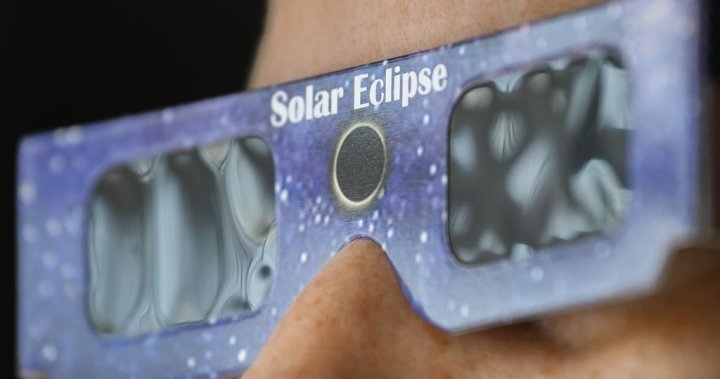
Canadian groups using interactive tools to help those with low vision enjoy eclipse
Global News
Eclipses have historically been thought of as a visual experience, but multiple groups hope to change that by using tools designed to make the event more accessible.
Total solar eclipses like the much-anticipated one taking place on Monday are usually thought of as visual experiences.
Lasting memories of the day might include a few minutes of complete darkness, prompted by the rare alignment of the sun, Earth and moon.
The highlight for others, if they’re lucky enough to get their hands on a pair of special eclipse glasses to protect their eyes, could be a glimpse of a partially shadowed sun.
But eclipses have historically been more difficult to experience for those living with blindness or low vision. This time around, multiple groups hope to change that by using tools and educational materials designed to make the event more accessible.
“Unfortunately, there are a number of barriers to access astronomy content if you are low vision or blind. It’s a very visual science,” said Heidi White, outreach officer at the University of Montreal’s Trottier Institute for Research on Exoplanets.
“However, in recent years, there has been a substantial amount of work to try and create educational resources for members of the blind community so that they can learn about astronomy in a very interactive way.”
In Montreal, considered one of the prime locations in Canada to experience the eclipse, resources will be available across the city for those with visual impairments.
That includes the Montreal Science Centre, which has brought in devices from Harvard University designed to transform the eclipse into an audio-focused experience.
